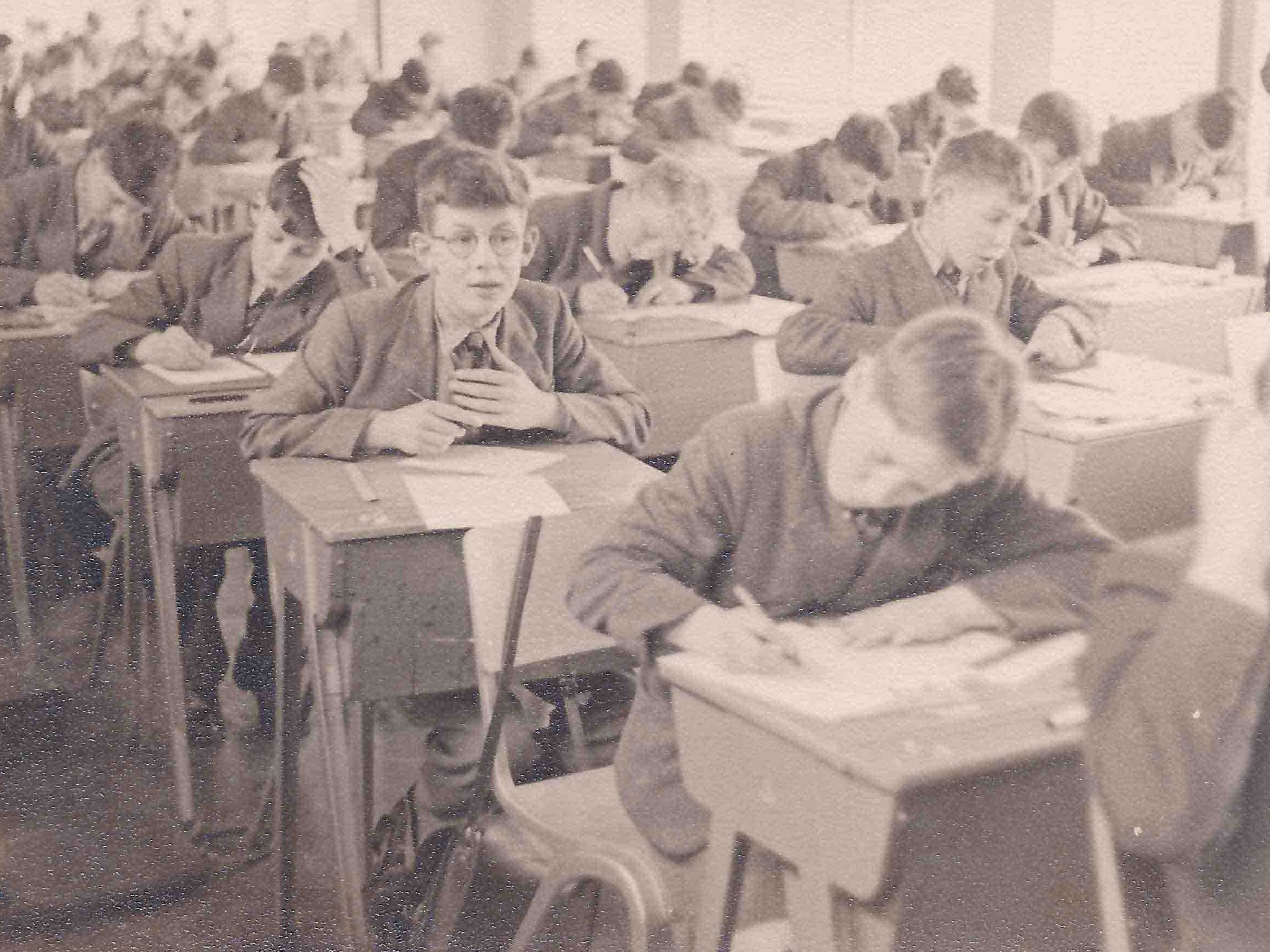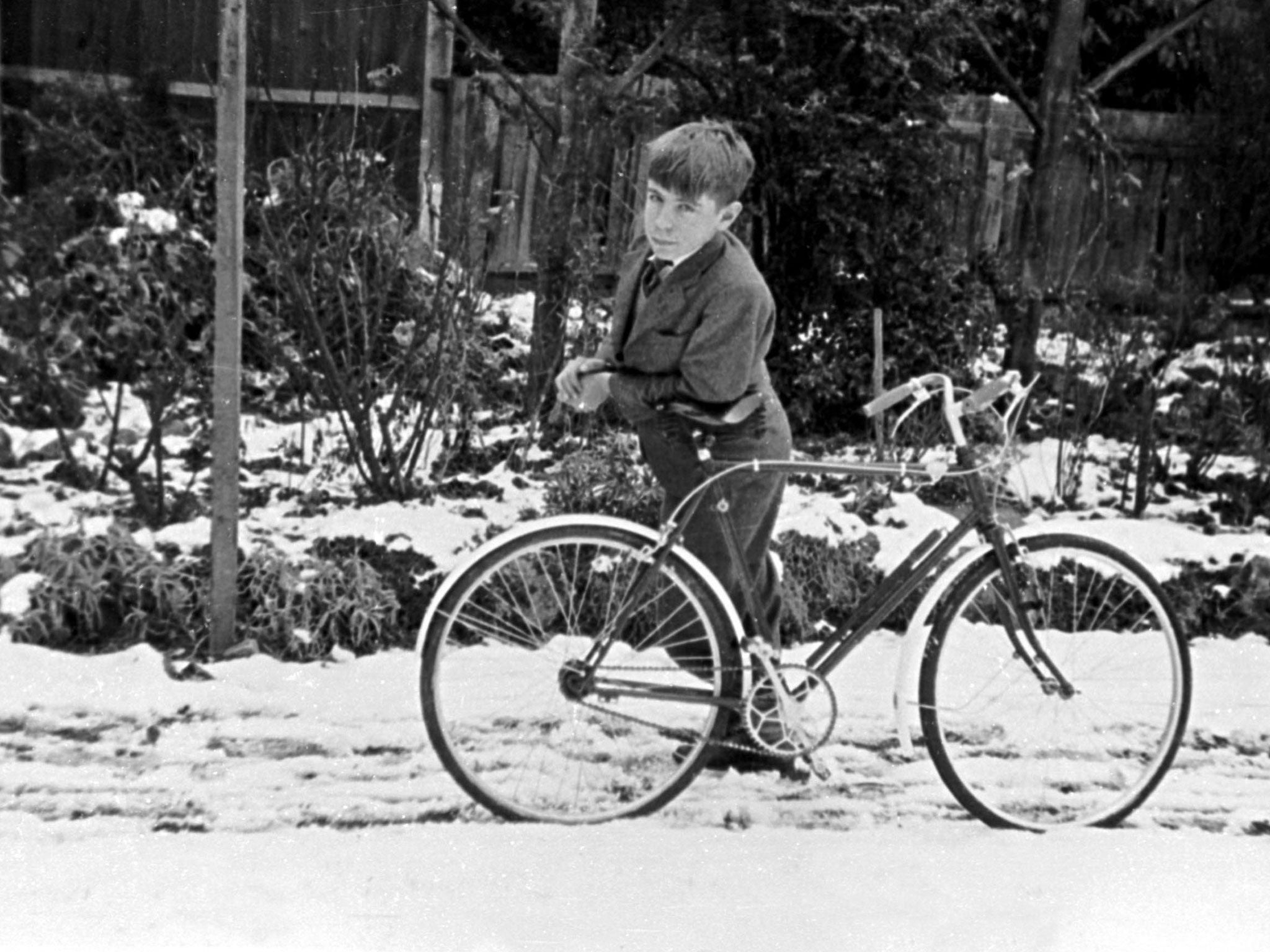Once upon a time, Stephen Hawking was just another schoolboy...
Stephen Hawking is about to speak at a fundraising event for his alma mater in St Albans. The school is often overlooked in the formation of the famous physicist, says his former classmate Michael Church

Those of us who were his friends at St Albans School have fond memories of the young Stephen Hawking. Small, gauche and a butt for bullies, though he never let that get him down; a practical joker with a special talent for slow-bicycle races; academically clever and clearly destined for science, but giving no hint of impending greatness.
He spoke exceptionally fast, often in his own inventively garbled language; thus “silhouette” became, with neat appropriateness, “slit-out”. Bored with the banalities of Monopoly, he became a whizz at devising his own board games, his favourite being a medieval war game (with laws, treaties, budgets and armies) of such complexity that it could take half an evening to work out the consequences of a throw of the dice. And as the son of a former member of the Young Communist League, it was natural that he should get us all to join him on Ban the Bomb marches to Aldermaston, a cause to which he would continue to maintain his allegiance long after it had ceased being fashionable.
Two young scientists in our group were well aware of his potential. My own non-scientific realisation that he was special came when, one evening in his chaotic, mad-professor’s den, I was holding forth about the meaning of life. I suddenly became aware that 16-year-old Stephen was disagreeing and from an amused, disdainful height. The raffish figure he turned into at Oxford, where he coxed eights and hung out with oarsmen, had a touch of arrogance which only hindsight would reveal as richly justified.
The one element in his formation that is always overlooked is St Albans School itself, despite his frequent avowal that its charismatic Armenian maths teacher Dick Tahta – with whom he built a giant proto-computer from switchboard scrap – had been the biggest inspiration of his teenage years. Everyone’s school is retrospectively significant, but for Stephen, St Albans had a particularly poignant significance: those were almost the last golden days when he could run, jump, ballroom-dance, play tennis (erratically) and lead a normally active life.
The friendships he made there have stayed with him: when I visited him in Cambridge at a time when he wanted to mull over the past, he went through a long list of classmates, noting with something approaching resentment the exact number of years which had passed since each had come to see him. It’s very significant that, at a special event in the Science Museum tomorrow, he will slip out of character and give a supportive speech at a fund-raising bash on behalf of this school (alongside the film-maker Mike Newell – another Hawking contemporary – who will show a short film he has just made about the school as it is today).

In the Fifties, St Albans – a direct-grant public school with a small complement of boarders – perfectly reflected the upwardly mobile culture of its Home Counties catchment area. Gracefully landscaped into the cathedral precinct, it had as its focus a medieval gatehouse whose grandest classroom – with furniture and floor marked for hieratic rites – served by night as the temple of the local Masonic lodge. But the library that that room gave onto was an exquisite temple of learning, with a first edition of Johnson’s Dictionary among the books lying around.
The imposing science block had been forced on the school by a zealously modernising post-war government. Half the pupils had won their free places by competitive examination. The rest paid fees, but had still competed for entry: since Hertfordshire was then full of highly educated refugees from Central Europe, the school drew on a pool of ferociously motivated talent. As he admits in his new autobiography,* Stephen was never more than half way up what he describes as his “very bright” A-stream class. He wasn’t a star.
A scholarship at Oxbridge was the goal towards which everything was geared. Every boy admitted to the school at eleven was by definition bright, but streaming ensured that by the time people reached the bottom stream of the Fifth they had been taught to regard themselves as failures. (Gold into dross – what a brilliant system.) But if the brain was put on a pedestal, so was brawn, for in those days sporting prowess could just as easily win you a place: hence the two long afternoons each week of compulsory sport (not Stephen’s forte), with open-air swimming in water that could be as cold as 12 degrees C. Meanwhile, our talented teenage painters were corralled like lepers in a ghetto, a condition compounded by the fact that the brilliant but paranoid art master welcomed this outsiderness as a badge to be worn with pride. Indeed, the masters at St Albans were in many cases of a much higher intellectual calibre than the university teachers we moved on to.

But a lot of them were deeply eccentric, with the gently unhinged First World War veteran and the noisily shell-shocked Dunkirk survivor being merely the most obvious. And some had a darker side, in ways that would not be remotely tolerated – there or anywhere else – today. Beating could be the punishment for almost any offence more serious than being seen in the street without a cap, or being caught with your hands in your pockets when not yet in the Sixth, and while some masters used their cane to administer what was virtually an amorous caress, others wielded it with lip-smacking ferocity (the sixth-form prefects were beaters, too). Things could get preposterous. I remember a master suddenly running up behind a boy and kicking him hard in the backside. When the boy turned round in amazement, the master jovially explained: “ Sorry, boy, my foot strayed!” Alan Bennett, where were you?
The prevailing tone was set by the head, a classicist-athlete with a distinguished naval war record named WT Marsh, who liked to finish the morning assembly with a display of intellectual rigour to impress his obedient, dark-suited subjects. The death of an Old Albanian in a cycling accident thus became the occasion for a lesson in Greek drama. “Some people will tell you that this was a tragic event,” he barked. “ But they will be wrong! It’s certainly unfortunate and doubtless very sad for his parents, but it was not tragic.” He then went on to explain the true Aristotelian nature of tragedy – pity, fear, the fatal flaw. Homilies such as this were delivered when late-comers and non-Anglican infidels (Jews and Catholics – no Muslims in the Fifties) had been admitted after prayers.
One of these, an ostentatiously willowy and habitually late sixth-form poet, was routinely reviled and sometimes punched hard in the stomach by the head as he swept contemptuously out. It was a matter of perennial irritation to Marsh, as he harangued us about moral fibre and upholding the school’s “reputation”, that our motto should have been that of the bisexual Elizabethan philosopher (and first Viscount St Alban) Sir Francis Bacon: “ Mediocria firma – the middle way is safest” – that being an eminently sensible principle to follow in dangerous times. What riled Marsh was the implicit (though erroneous) association with mediocrity, but if anyone had told him about the bisexuality he’d have blown a gasket and changed the motto like a shot. (In 1994, it was supplanted by the sweetly sanctimonious “ Non nobis nati – Born not for ourselves”).

In the Fifties, we all expected to have to do national service, a duty abolished, to our relief, just in time for us to escape it on turning eighteen. And at St Albans, weekly officer-cadet training was compulsory: every Friday the school became, in effect, a military academy. This was something for which Stephen, who in uniform looked like a junior recruit for Dad’s Army (“Hawking! Your turnout’s a disgrace!”), was hilariously ill-suited. Those few who managed to opt out – because their parents insisted, or because they’d successfully argued their way past the head and his thought-police – were ritually humiliated: the head decreed that the “non-corps set” (offspring of Jehovah’s Witnesses, vegetarians, etc) should dig out a Greek amphitheatre in the school grounds, week-in week-out, wearing running kit whatever the weather.
The rest of us learned to square-bash, route-march and, during our purgatorial annual fortnight under canvas in the army camp at Catterick, to strip, assemble and fire machine-guns. Out on the range, we were told that only sissies wore earplugs and that, in any case, they weren’t on offer (I was not the only one to get permanent ear damage as a result). For his first stint with a Bren, the ever-inventive Stephen improvised his own earplugs from blotting paper and the following day, with ears inflamed, had to be taken to the camp doctor to get them dug out.

Hell on earth? By no means. St Albans may have been a claustrophobic place, but it was also full of music, drama and the pleasures of the mind: the constant throughput of bright young teachers – many driven on to more rational institutions by Marsh’s peppery capriciousness – ensured that we were well plugged into the big intellectual debates of the day.
Stephen Hawking’s unique meld of revolutionary science and mischievous, liberal-Left radicalism surely owes quite a lot to this crazy pressure cooker of a school.
* 'Stephen Hawking: My Brief History' (Bantam Press, £12.99.)
© Michael Church
Join our commenting forum
Join thought-provoking conversations, follow other Independent readers and see their replies
Comments
Bookmark popover
Removed from bookmarks